Episodes
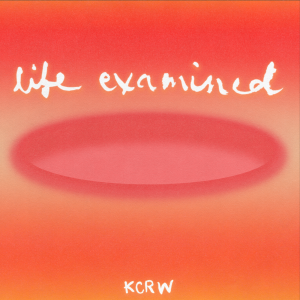
Monday Jan 27, 2025
Monday Jan 27, 2025
Writer and author Pico Iyer chronicles his over one hundred retreats to a small Benedictine hermitage high above the ocean in Big Sur, Northern California. Sharing personal experiences and stories, Iyer delves into the transformative nature of silence, contemplation and solitude.
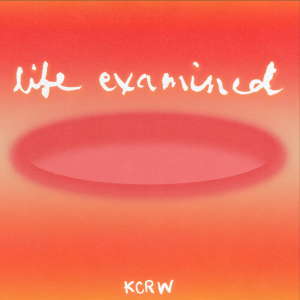
Wednesday Jan 22, 2025
Wednesday Jan 22, 2025
This week, Alex Hutchison, writer and author of Endure and The Explorer’s Gene: Why We Seek Big Challenges, New Flavors, and the Blank Spots on the Map, talks about the Arrival Fallacy - that what we expect to feel after we accomplish a goal like getting a promotion or running a marathon sometimes doesn’t quite match up with our expectations. Rather than seeking a life changing transformation, Hutchinsons says to focus on the satisfaction and joy that’s gained from the process of achievement and not necessarily the outcome.
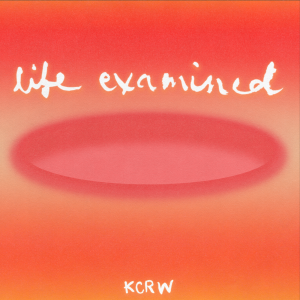
Sunday Jan 19, 2025
Sunday Jan 19, 2025
In the aftermath of the massive devastation, loss of life, homes and communities due to the recent fires in Los Angeles, George Bonanno, Margot Kushell and Carolyn Korsmeyer talk about trauma, resilience and why our homes and possessions are an integral part of who we are and the legacy we leave.
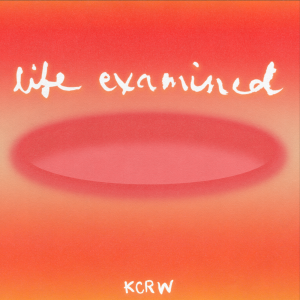
Wednesday Jan 15, 2025
Wednesday Jan 15, 2025
This week, Brad Stulberg writer and author of “Master Of Change: How To Excel When Everything Is Changing - Including You,” shares hopeful observations from the aftermath of Hurricane Helene and reminds us that it takes time, sometimes months to recover from a large trauma but that given time despair will turn to resilience and people are able to move forward.
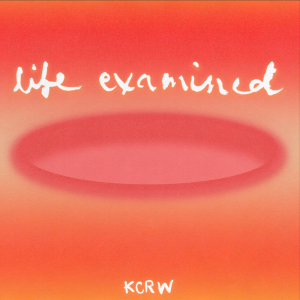
Sunday Jan 12, 2025
Sunday Jan 12, 2025
Author and palliative care doctor Sunita Puri reflects on the hope that drives people to hold on to life, and the uncertainties surrounding death. Endurance athlete and author Alex Hutchinson talks about the psychology and physiology behind human endurance.
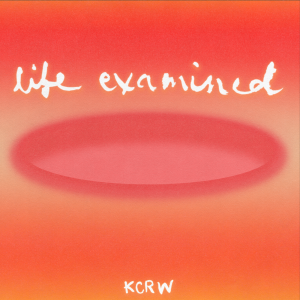
Wednesday Jan 08, 2025
Wednesday Jan 08, 2025
This week MIT cognitive scientist and author Tali Sharot reflects on how variety and breaking up routines and habits can help foster a reset and restore joy in our lives. Traveling or learning a new skill can be stimulating, challenging and lead us to a greater sensitivity and appreciation of life.
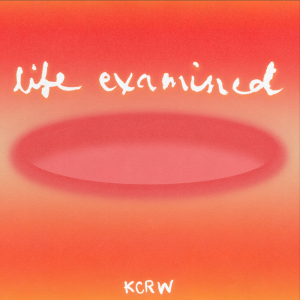
Sunday Jan 05, 2025
Sunday Jan 05, 2025
Johnsons points out that being engaged in the larger questions of our existence is also healthy for us. “We need this exposure to the universe to invoke humility, to kindle our humanity, to really spark creativity and curiosity.”
Johnson also speculates on the existence of extraterrestrial life and unexplained sightings, suggesting that, given the vastness of the cosmos, it’s more likely than not that other forms of life exist. “I think it's probably more likely than not that they exist…If there is extraterrestrial life, chances are that they are probably millions or 10s of millions of years more technologically advanced than we are…If they don't want to be seen, we're not going to see them.”
One thing that Kelsey Johnson does want us to see more of is the night sky. Currently, there are only two spots in the eastern half of the country “that can still reach levels of darkness in the night sky that are considered pristine. And that is extreme northern Minnesota, right on the Boundary Waters, there's a little pocket. And in extreme northern Maine, right up, in the top near Canada.”
Losing access to the night skies results in a further disconnection from the universe. As Johnson points out, the only “accessible forms of awe to humanity over millennia has been the night sky, and now 80% of the global population doesn't have access to it.”
“If they don't have access to [a dark sky], they don't know what they're missing, and they don't know what is being lost.”
Johnson points out that light pollution has largely gone unnoticed, yet its impact on our ecosystem has been devastating. "It's affecting all the flora and fauna," she says. "It now has traceable impacts on a whole host of things related to human health. Everything from insomnia and depression to cancer."
Delve deeper into life, philosophy, and what makes us human by joining the Life Examined discussion group on Facebook.
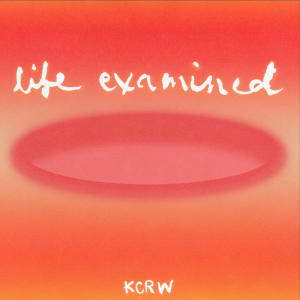
Sunday Dec 29, 2024
Sunday Dec 29, 2024
*This episode originally aired on July 23, 2023.
Navigating the relentless pace of the modern world often means being bombarded by daily distractions, sleep deprived and perhaps a little stressed or anxious. It’s not easy. When it comes to looking for a moment of reflection and recalibration, it’s worthwhile to reexamine some of the philosophies and practices rooted in one of the world’s oldest cultures: Japan.
Jonathan Bastian talks with Pico Iyer, travel writer and author of “The Half Known Life: In Search of Paradise.” Born and raised in England, Iyer spent much of his younger adult life in New York and California before moving to Japan in 1992. From his first day there, Iyer recalls, he felt, “a mysterious sense of recognition … as soon as I spent my first morning in Japan walking around near the airport in Tokyo — not, obviously, an interesting or romantic place — I felt, ‘I know this place and this place knows me.’”
More: In search of paradise — and why travel writer Pico Iyer says it may be within
Since then, Iyer has discovered that the more time he spends there, the better. Perhaps that’s because, at 66, he’s aged into a society in which being “older” is also culturally revered and embraced.
“Maybe the real reason I wanted to move was [because] it's a very mature, seasoned old society. For me, going to Japan was like seeking out an elder,” Iyer says. “I've reached the age when I really want to learn how to live and what it all means, and I felt that Japan could offer that as well as anywhere.”
The Eastern philosophy that dominates Japanese cultural traditions centers itself on a strong sense of community. In contrast to the US, where individualism is revered, Japanese society is generally collectivistic, with people often viewing themselves and others as members of cooperative groups or units. Accordingly, older members of Japanese society are respected for their wisdom and maturity.
More: The external and internal pilgrimage: Author Pico Iyer on the purpose of journeying in modern times
Iyer also discusses the concept of impermanence, a tenet of Buddhist philosophy that Iyer says is “deeply woven into every fabric” of Japanese society.
“Every April, everyone races out to see the cherry blossoms, precisely because they last for only ten days. And if they were to last, even for a month, there'd be none of the excitement and none of the sense of grabbing the moment,” he says. “[It’s a] Japanese truth, which is a universal truth: Nothing lasts forever.”
Pico Iyer, pictured here, explains that in Japanese culture, “the fact that nothing lasts is a reason that everything matters, every moment matters, and one can't take anything for granted.” Photo courtesy of Derek Shapton.
More: Spiritual writer Pico Iyer says now is the time confront who we really are
Social and medical anthropologist Iza Kavedžija has done extensive research and fieldwork with two distinct groups of people in the Kansai region of Japan. Her primary focus, and the subject of her book “Making Meaningful Lives: Tales from an Aging Japan,” has been examining how older members of Japanese society are cared for by the community and by one another.
In Osaka, Kavedžija observed that in order to maintain social links and ties, older people have created a social network — a sort of social safety net that they need in order to live well. Surprisingly, it's Japan's older generation that’s “driving societal changes,” explains Kavedžija. “We don't tend to think of older people as those who are driving the processes of social change and crafting new social relations, but that's exactly what they were doing.”
Another practice Kavedžija observed in her research, and which in recent years has gained international traction as a lifestyle philosophy, is that of ikigai, which translates to “reason for being.”
“Ikigai can sometimes be quite a modest pursuit, some small hobby or small set of interests, or even a form of attention,” explains Kavedžija. “Being able to observe the birds in the garden through the window, and being able to do that every day, and that simply gets you out of bed, can be seen as a form of ikigai. … It's looking out for those small things in life that kind of get you going.”
Kavedžija says Japanese philosophy is very much guided by the principles of humility, gratitude, and community. What struck her, particularly in her research with the elderly, was the cultivation of broad networks of care.
“Even among fairly old people in their 80s and 90s, they themselves were not only just recipients of care, but were very caring and involved in numerous caring relationships, which would scaffold other people's lives,” she says.
While researching Japanese society, Iza Kavedžija, pictured here, observed that, “when disposing of things, people would often kind of thank things for their service, or try to find a good home for an item, passing it on to someone who needs it. And this way of being in the world is quite helpful in a society where there's a lot of objects, and there's a lot of consumerism.”
Delve deeper into life, philosophy, and what makes us human by joining the Life Examined discussion group on Facebook.
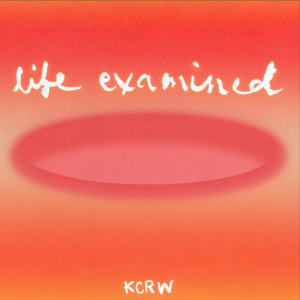
Sunday Dec 22, 2024
Sunday Dec 22, 2024
Writer and winter enthusiast Katherine May revels in the winter months. While the long, dark evenings invite us to huddle indoors and disconnect from the world, they also offer a chance for reflection, remembrance, and a reset in our lives. As May explains, this season is a time to pause and recalibrate for many.
“Winter is a season of dread as a time of year when grief surfaces. There are people who will be spending their first Christmas alone, or maybe their fifth Christmas alone – everything will be out of place.”
May, author of the book Wintering: The Power of Rest and Retreat in Difficult Times, encourages embracing those feelings of loss and loneliness that seem to creep in with the cold. She argues that “this time of year, we're often so tired and grumpy” that “we have to treat ourselves like children sometimes, who are in need of a nap, in need of a snack, in need of a bit of quiet time.”
The cure for this? May encourages going outdoors and looking to nature for inspiration and guidance, pointing out that even at the bleakest, darkest time of year, life goes on.
“Think about it in terms of hibernation, in terms of really drawing back. It becomes this beautiful process of rebirth to me and this paring back of what we need teaches us something really profound. Which is that life goes on, even in the most compromised of circumstances.”
To wrap up 2024, Life Examined host Jonathan Bastian and producer Andrea Brody reflect on their year, both on and off the air. They share what defined the year for them personally, highlighting the guests and conversations that left a lasting impact—from the chaotic, unpredictable world of Burning Man to a deeply personal story of loss, and much more.
Delve deeper into life, philosophy, and what makes us human by joining the Life Examined discussion group on Facebook.
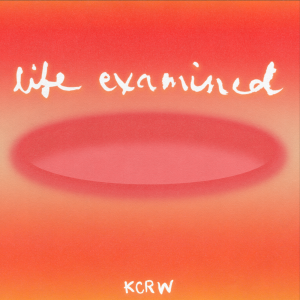
Sunday Dec 15, 2024
Sunday Dec 15, 2024
Brad Stulberg, author of Master Of Change: How To Excel When Everything Is Changing — Including You shares his observations of humanity, resourcefulness, and community after his hometown of Asheville, North Carolina was hit by Hurricane Helene. The devastating storm left residents without power, water, and communications for days on end.
In the aftermath of the storm, neighbors sprang into action by sharing, gathering, and helping each other wherever they could. Stulberg shares this anecdote about observing his community:
“People came together like I had never seen before. And for those that aren't familiar with western North Carolina, Asheville is a very blue political place, but the surrounding areas are quite red… All of that just completely went away, it was just pure connection on a human level.”
Stulberg likens this experience of hope and resilience to the concept of "tragic optimism," as described by Holocaust survivor Viktor Frankl’s book Man's Search for Meaning. Frankl argues that even in the face of pain and despair, we can choose to remain hopeful and optimistic. “We need to be able to look these tragedies in the eye,” Stulberg explains, “expect that they're going to happen and at the same time be optimistic – trudge forward with a hopeful attitude. And Frankel would argue, not in spite of those tragedies, but actually because of them. There's so much in life that is hard, what is going to sustain us through the hard times is also embracing the beautiful when it's there and holding on to it.”
All proceeds from the sale of Brad Stulberg’s book, Master Of Change: How To Excel When Everything Is Changing — Including You, through the end of the year will go towards relief funds helping those impacted by Hurricane Helene in Western North Carolina.
Stulberg, who frequently writes and speaks about mental health and human potential, also addresses his concerns about a current (and well-documented) crisis of masculinity. He does this by sharing some of the latest data on mental health and friendships. “Men are four times as likely than women to die by suicide, right now,” Stulberg tells us. “Nearly half of male teens say that they've never dated — almost double the rate of previous generations. 30 years ago, a majority of young men said that they had over six good friends. Today, the majority of young men say they have only three friends and 15% of young men report having no close friends.”
While there is no single cause for “the increase in loneliness and the male loss of status or feeling like you don't matter,” Stulberg highlights one observation he’s made, and that’s the change in youth sports. Once a community-driven, recreational outlet, “youth sports [have] become increasingly professionalized now. In many areas, you have to pay to play, it's all about travel teams. So these outlets that men used to have to feel really good about themselves are harder to access for a lot of folks.”
Delve deeper into life, philosophy, and what makes us human by joining the Life Examined discussion group on Facebook.


